Paralyzed Yet Strong: Finding New Life in Paralysis Through Faith and Hope
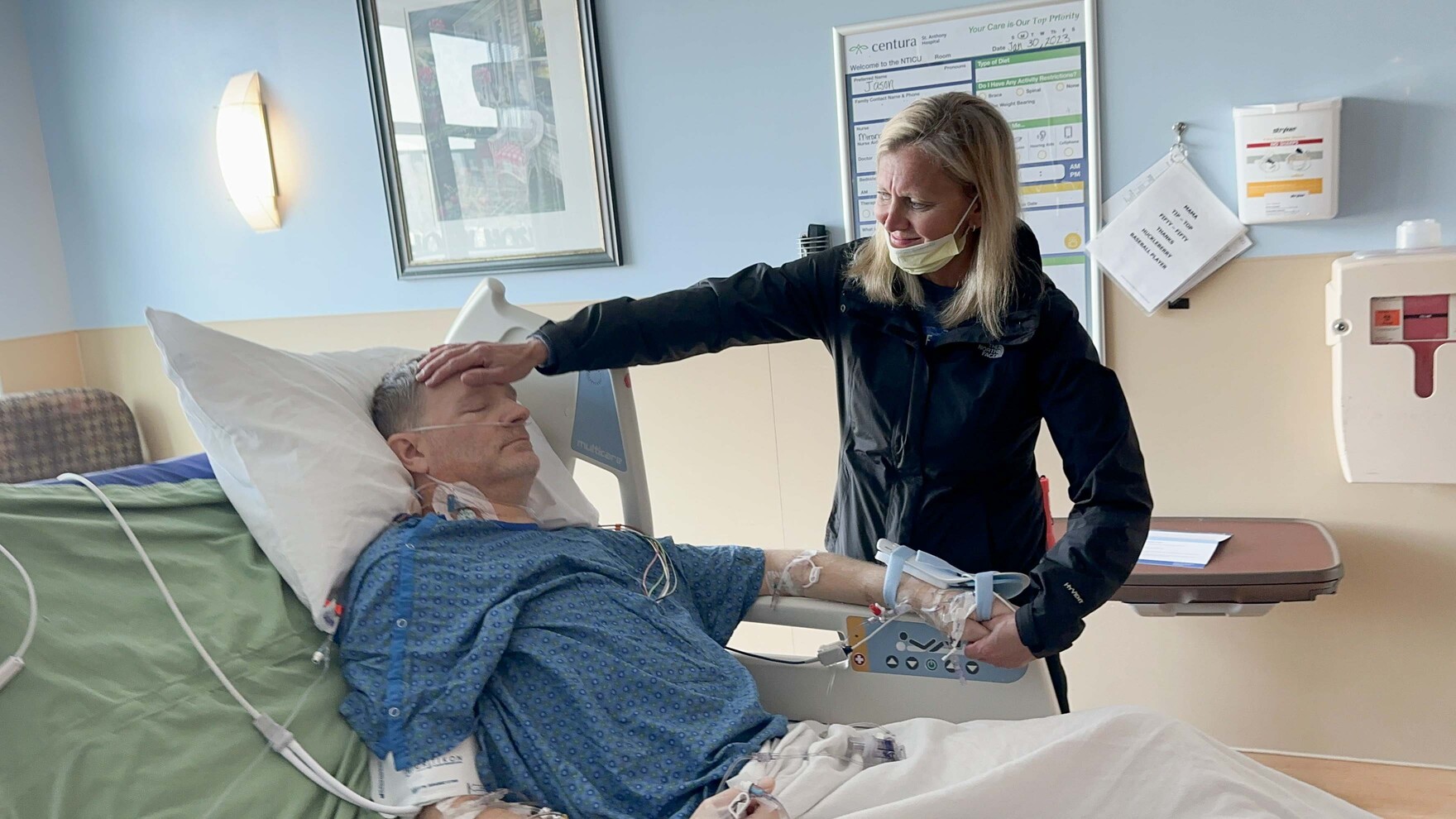
On the morning of January 29, 2023, I was on top of the world. Literally, I was on Copper Mountain in Colorado (12,441 feet!) with friends from church for our annual long weekend getaway of Bible study, fellowship, and of course, great skiing. Likewise, at age 49, I was in peak performance at work as an emergency medicine physician. Then, whether I was at home with my wife and four kids or at our wonderful local church, things couldn’t have been better. From this perch, I literally and figuratively could see for miles, and the view was stunning. God had provided abundantly, and I was grateful.
But by noon that same day, I was at the bottom of the mountain, in the darkest valley of my life. Within eyesight of the lift line I was headed towards, I had made a wrong turn and flew over an unseen 20-foot drop at high speed. I don’t remember most of the crash, and I emerged from my concussion as a crumpled heap of broken bones and broken plans for the future.
Drawing on my medical training, right there on the bottom of the mountain, I told my ski companion, “Jon, I’m a T-10 paraplegic, and I’ll never walk again.” But even at that moment, by God’s gracious providence, he brought to mind his promise that I had hidden in my heart: “My grace will be sufficient for you.”
Those words gave me tremendous emotional and spiritual comfort there at the bottom of the mountain, and they still do today. But as the adrenaline rush began to wear off, I realized I was in great pain. From my bellybutton down, of course, I felt nothing, but in my chest, mostly my right side, I had terrible pain. Further, I was getting short of breath. I suspected my chest was filling with blood and I was in critical condition.
Later, I learned I had broken 14 ribs, my sternum, clavicle, and in fact, T-10, completely damaging my spinal cord. “Tell them to take me to a Level 1 trauma center,” I implored Jon.
The ride on the paramedic toboggan from where I fell to the waiting ambulance at the base of the mountain was short but brutal. Every small bump was torture. My mind drifted to my older brother, who just a few months earlier had suffered a severe chest wall injury in a high-speed waterskiing accident. I also thought of my dad, who 55 years prior had suffered a gunshot wound through his right elbow on the other side of the world, having to spend the whole night in pain, lying in a jungle in Vietnam until medical help arrived in the morning. And I also thought of Jesus and his suffering, and I took great comfort in this thought: Eric has been through this; Dad has been through this; Jesus has been through this. Now it is my turn to suffer. God’s grace will be sufficient.
I had surgery that night to stabilize my spine and spent over a week in the ICU. From there, I was transferred to a dedicated rehab hospital in Denver, where I had no idea what lay ahead. How long would I be there? Would I heal? Would I be able to function? Those first few weeks in rehab were really hard, and I cried almost every day.
Not only could I not control my legs, but also, I could barely move at all. I had lost so much strength in my upper body from the week in ICU and was suffering from so much rib cage pain that every movement felt unbearable. I could not even blow my nose; it hurt too much. I had lost control of my life.
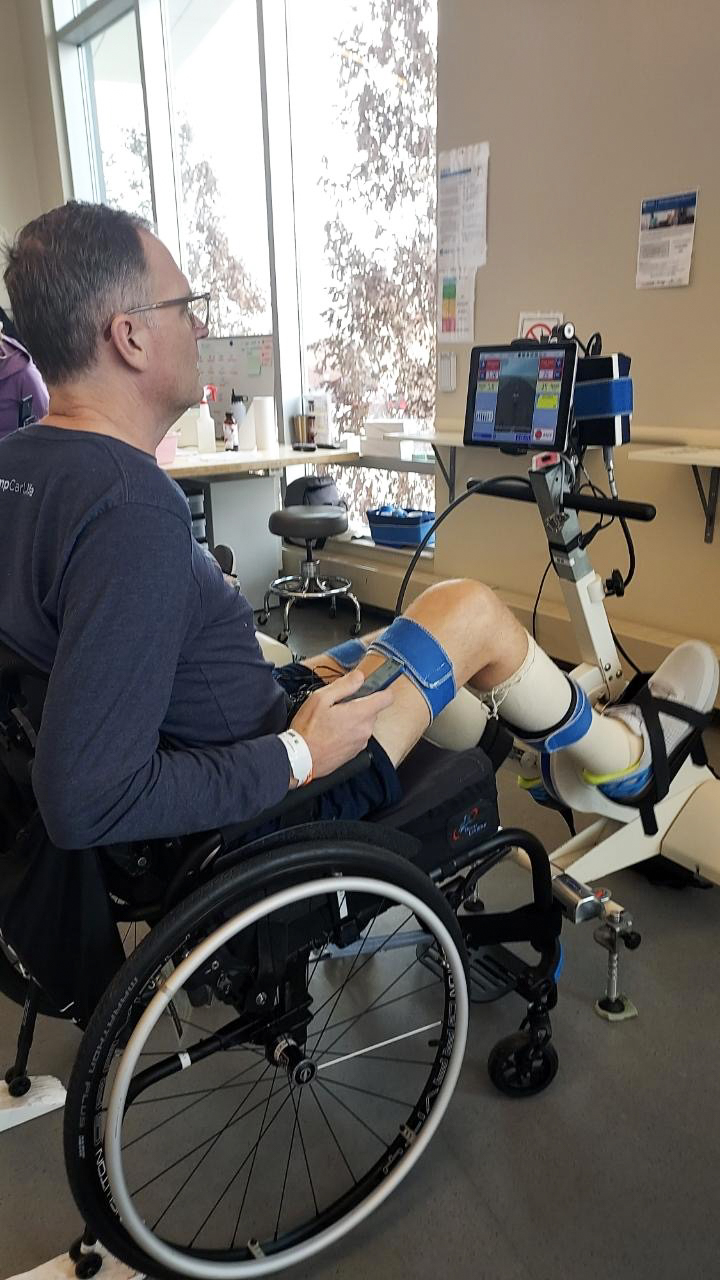
However, from my room 424 at Craig Rehabilitation Hospital, I could see the Rocky Mountains in the distance, and as I recalled the story of Job, I felt God asking me, “Jason, where were you when I made those mountains?”
It reminded me that the Creator and Sustainer of the universe could handle the details of my life. What a tremendous relief that was. I didn’t have to run the world! I didn’t even have to understand why the accident happened. Instead, I could rest in the care of the Heavenly Father.
I clung to the promise of 2 Corinthians 12:9 (NIV), “My grace is sufficient for you, for my power is made perfect in your weakness.”
But to be clear, there was nothing easy about my time of rehabilitation. In the sentence above, I used the verb “clung” because during the two months at Craig Hospital, that’s often all I could do to make it. I had to cling onto his promise from 2 Corinthians 12:9 and from other Scripture verses to keep pushing forward by faith.

As I began rehab, simply transferring from the bed to my wheelchair took two nurses and a mechanical lift. Worse, the pain was so bad that I had to take strong opioids to control the pain. I worried about becoming addicted to pain pills, but for those first weeks, I had no other choice. I also faced a challenge I had never previously considered.
How would I control my bowels and bladder? I became acquainted with terms like “invol” that stands for “involuntary loss of bowel control.” It’s terrible to lose such bodily functions—in fact, “terrible” barely scratches the surface—but as any spinal cord injury patient will attest, this is a priority, if not a complete focus. It must become a daily task to regain any form of independence. After having an “invol” incident those months, sometimes I cried for a few minutes. Sometimes, I wept bitterly for a long time.
My injury didn’t just affect me, of course. It impacted my whole family. My wife, Amy, was returning from a weekend getaway in Florida and had just landed in Cleveland when she received the news of my snow skiing accident. She never even left the airport. Instead, friends arranged for a flight to Denver that same evening. Flying over the Midwest, she prayed that I would accept this difficult providence from God with open hands, and by his grace, we both did, surrendering to the sovereignty of God. Nonetheless, we still shared tears together over a future that looked unlike anything we had imagined. As children of God, we grieve as a people with hope, but we still grieve. Gratefully, the Lord sees us and meets us right where we are, embracing us with his presence of love and peace.
In addition, my family and I began to learn the power of lament. Our four children were aged 12 to 19 at the time of my accident, and each handled my injury differently. My son journaled raw emotions, crying out to God with deeply felt questions of why. My 12-year-old daughter wrote me a beautiful poem, which though quite different in format also expressed deep love and deep sorrow. Words are a powerful gift from the Lord. Likewise, my limitations in mobility rearranged our family’s structure. Each child assumed new responsibilities since Amy was with me in Denver every other week, alternating with my brother Eric so that I was never alone.
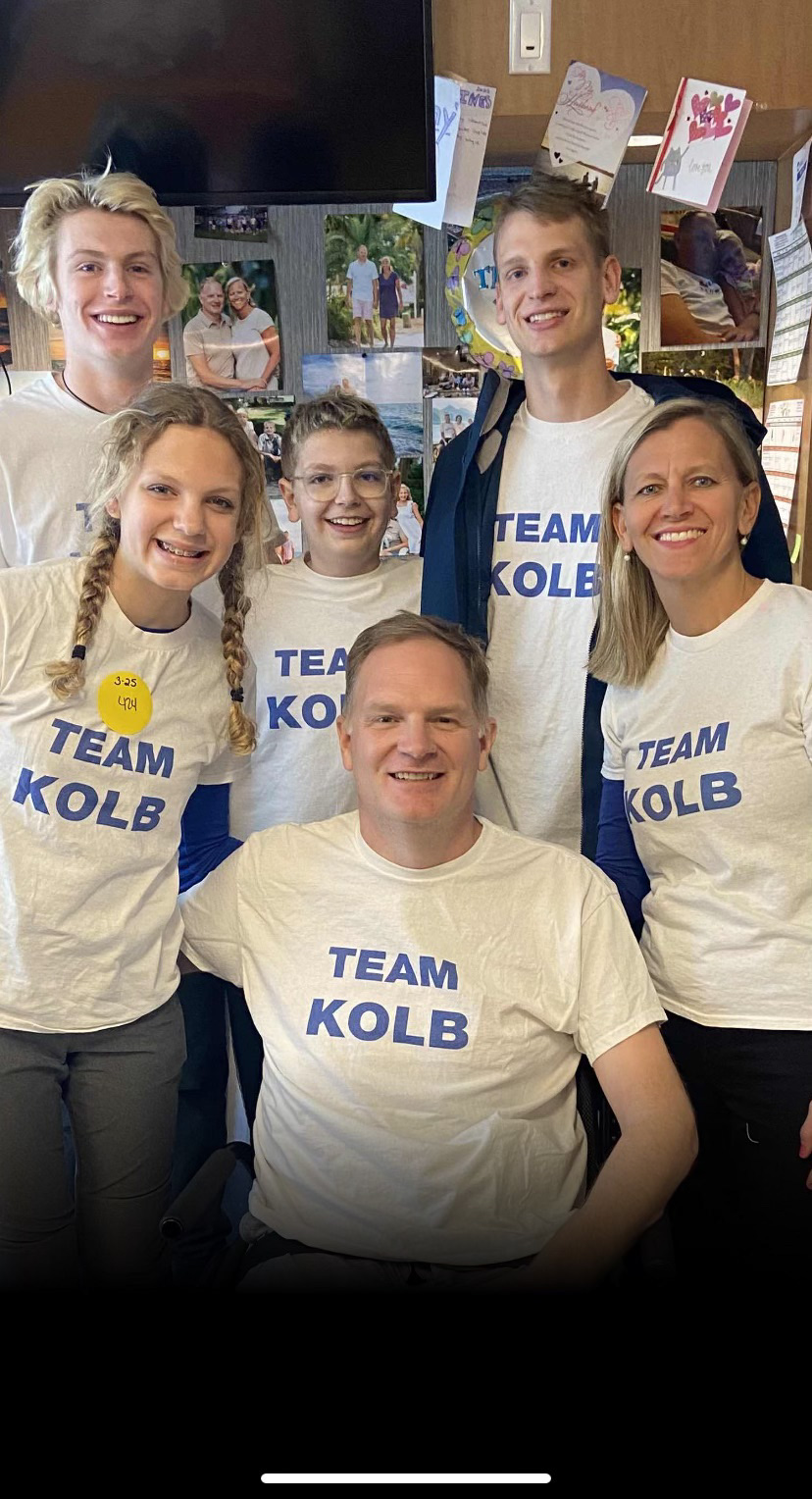
The kids visited on their spring break, and we began to experience what life would be like with me in a wheelchair. Many things remained the same, yet many things were very different. We played board games and ate together in the hospital cafeteria, but just getting in the car had now become an event, requiring substantial preparation. Adjusting to our new normal was going to take time.
Yet, through it all, even during those times of extended weeping, there was sufficient grace. Again and again, the Lord confirmed how his power is made perfect in our weakness. Also, I am grateful that over time, my rib cage healed, and I regained upper-body strength. I learned how to transfer unassisted, and I was able to wean off pain meds completely by the time I was discharged from Craig Hospital and returned home to northeast Ohio. Then, as my body continued to heal over the months, I became increasingly independent in daily life.
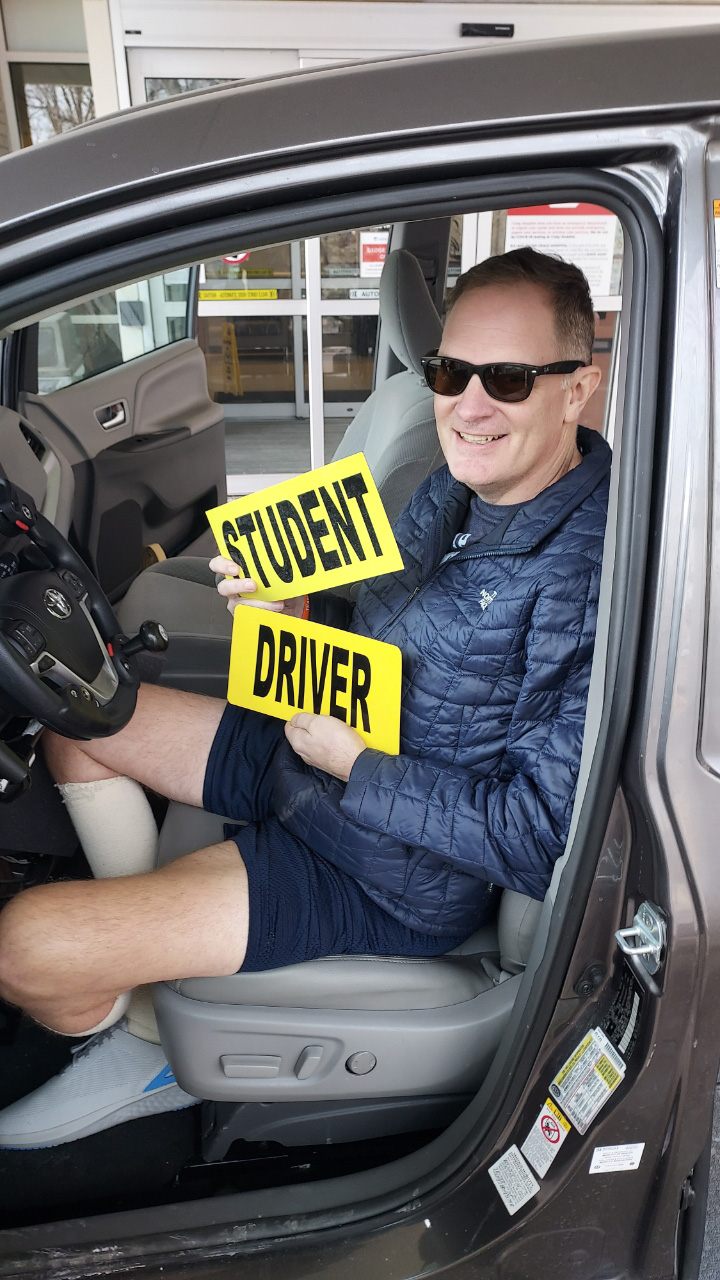
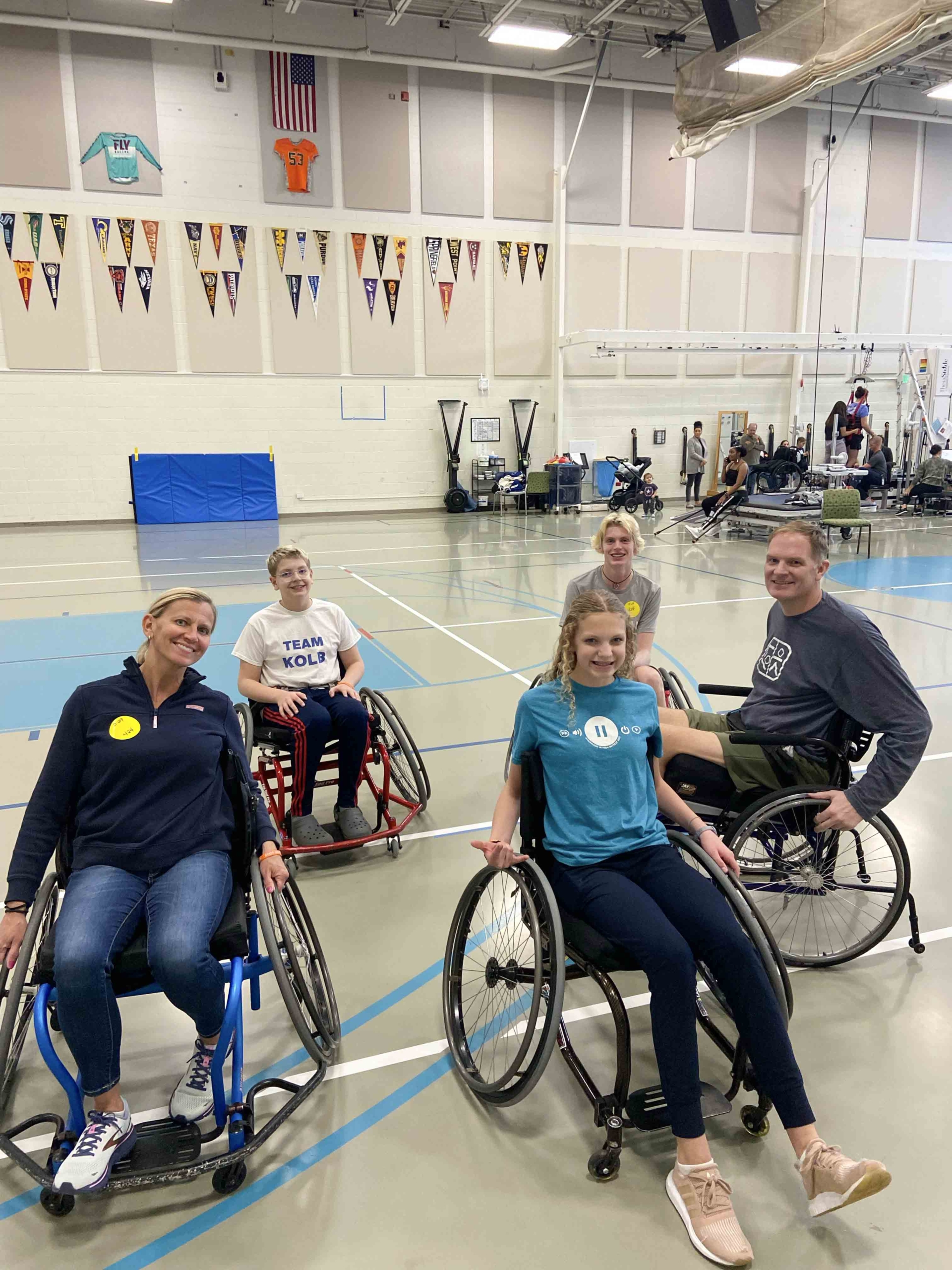
I certainly could not return to work as an emergency medicine physician, but I have found great joy and purpose as a part-time professor at a medical school, a part-time student at seminary, and a first-time author. I wrote a memoir called Down the Mountain, telling the story of my journey and of finding God’s grace in the midst of tragedy. It has been a blessing to encourage others in their season of suffering.
In coming months and years, I will still have much to learn, but I am grateful for what the Lord has already taught me. When I walked that morning of January 29, 2023, from our slope-side condo to the ski trail, how was I to know it would be the last time I ever skied, even walked? But I must say: I treasure everything about that January day and the months that have followed since then. As I indicate in the introduction of my memoir, if I could go back in time, I would do that day in the same way—the life-altering paralysis and everything else. I’d do it all again tomorrow.
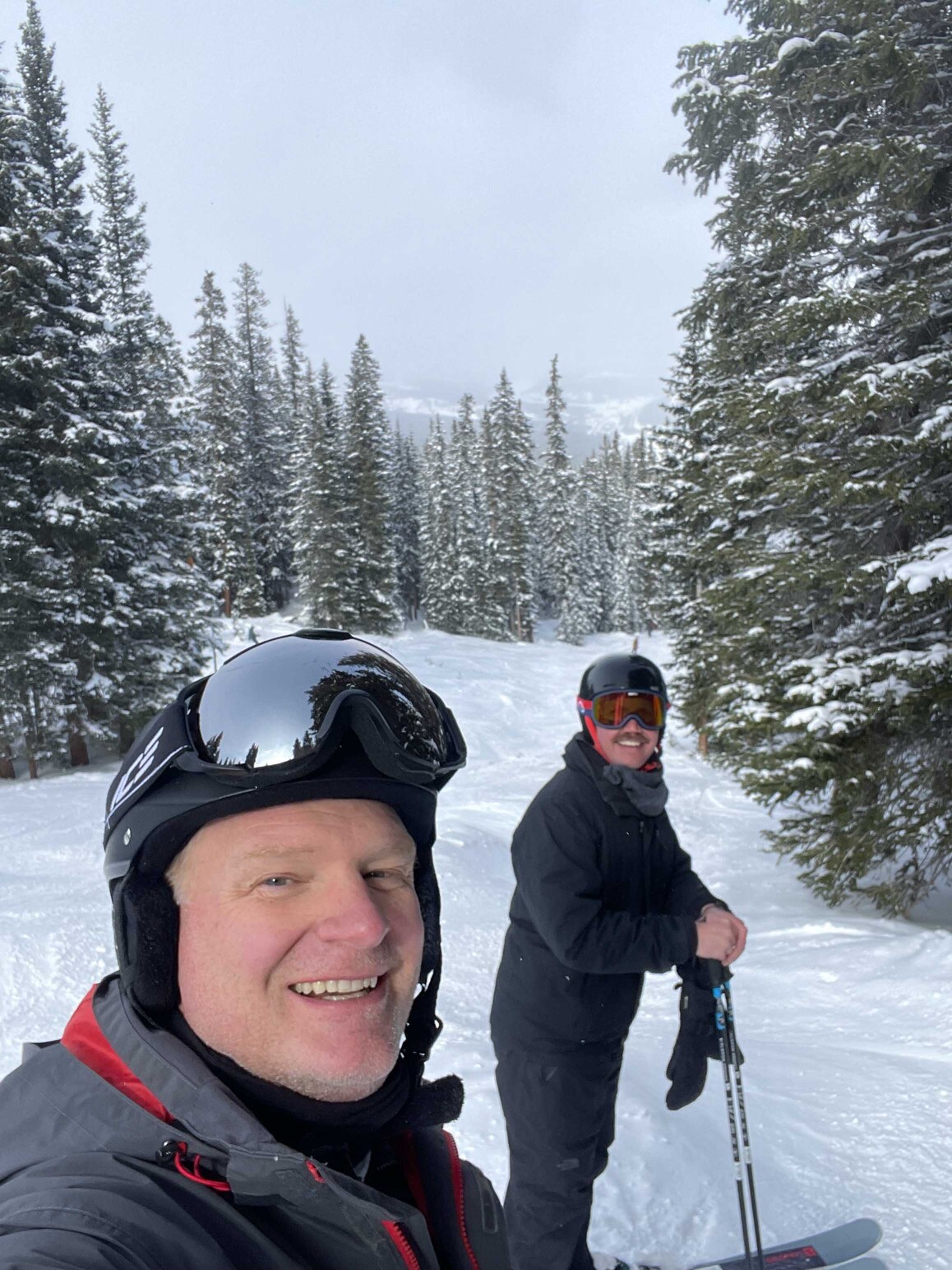
The reason relates to the title of this Disability in Mission blog article. I was falling higher when I fell down Copper Mountain. I was falling higher through rehab and through my new normal. I was falling closer to God and closer to my family and the larger community of faith. As I continue to fall higher, may his Word be a lamp unto my feet and a light unto my path as I run with endurance the higher race set before me. And may the Lord empower me to wait upon him, knowing that one day I will again run and not grow weary.
– by Jason Kolb
Jason Kolb shares his traumatic journey in his memoir, Down the Mountain: Skiing, Suffering, and Sufficient Grace.
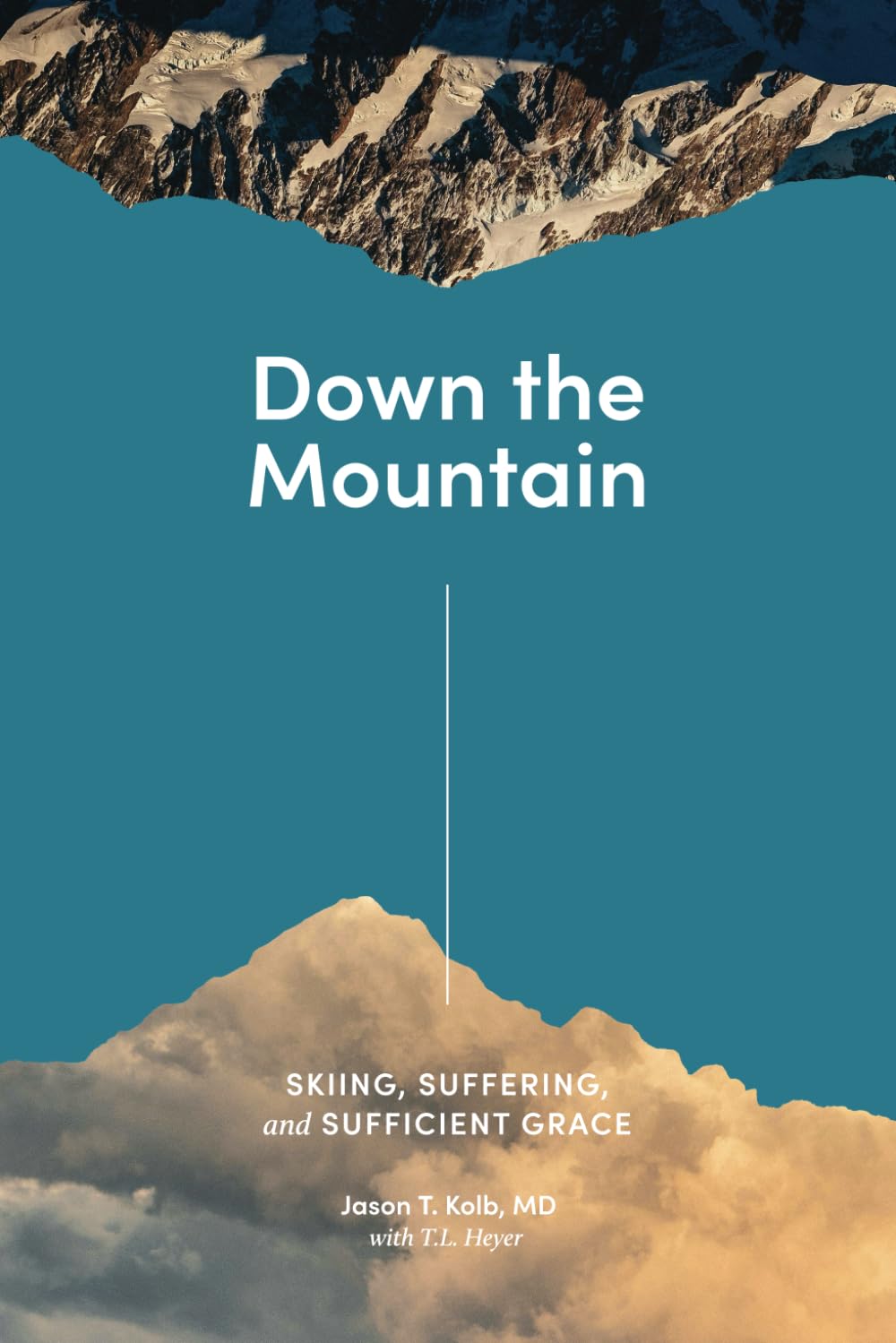
Down the Mountain: Skiing, Suffering, and Sufficient Grace
After a catastrophic ski accident left him permanently paralyzed from the waist down, Jason not only had to re-learn basic tasks like dressing and bathing, but also had to wrestle with the harder questions: why do bad things happen? If God is good and powerful, why does he allow suffering?

